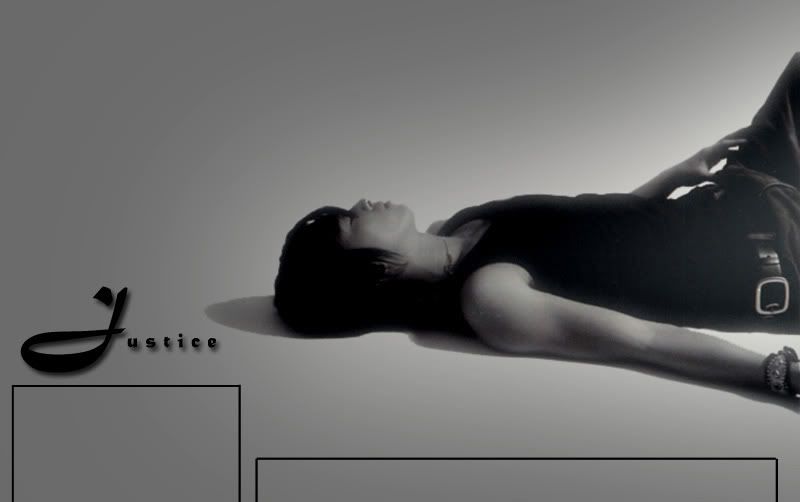» わたしのこと «
The writer does not intend to but tends to make silly remarks that make others laugh. Sometimes she enjoys this unintentional trait of hers, and sometimes she detests it. But nevertheless, she loves to laugh at silly things, both good and bad, mostly little silly things, because she finds that life is too short to spend it sulking away. She also tends to be sarcastic with her words because the subtlety of dry humour makes her laugh even more and lightheartedly at those who "just don't get it."
» ぜんかい «
Why we desire Mr Darcy
Her Little Secrets
How to Measure Life?
Doors of the New Year
A Christmas Raptor
Mourning and Miscellaneous
Escape
My Imaginary World
December 2005
January 2006
February 2006
March 2006
April 2006
May 2006
June 2006
July 2006
August 2006
September 2006
October 2006
November 2006
December 2006
January 2007
February 2007
March 2007
April 2007
May 2007
June 2007
July 2007
August 2007
September 2007
October 2007
November 2007
December 2007
January 2008
March 2008
April 2008
May 2008
July 2008
March 2009
» ともだち «
Adrian -
Aloy -
Cat -
Daniel
Dawn -
Druce -
Faith -
Jim
Karen -
Kim -
Kyoko -
Matt
Miss M -
Nicholas -
Nova -
Sel
Sherina -
Tuna -
Verbalme
Xiaohui
» おしゃべり «
» かんしゃ «
Sara -
Blogger
Tell it Slant
Sunday, January 29, 2006
"Tell all the truth but tell it s
lant," says Emily Dickinson.
Are stories then slanted truths? Do we live in a world where the truth often gets slanted one way or another?
Fiction often get slanted right from the start. For instance:
In a country there was a shire, and in that shire there was a town, and in that town there was a house, and in that house there was a room, and in that room there was a bed, and in that bed there lay a little girl... (
Wives and Daughters, Mrs Gaskell)
which is probably a good way for its readers to envision the entire setting of the story i.e. from general/wide setting down to the minute details.
or fiction gets slanted in some examples I got from
here:
A long time ago in Estonia, people didn't have bathtubs in their houses...At a time when the rivers were made of chocolate and wishes could come true...Back in the days when animals could talk...Here is a story! Let it come! Let it come!Do slanted truths have elements of truth in them? Yes they do, except the entire story cannot be considered the truth because it isn't so. Animals talking is not logically true in this world but it is true that they communicate one way or another, perhaps in a language that we do know of. A fable is not true in the sense of the story it speaks of, but the moral values it relates is true.
The setting of Estonia is a real place and we don't know if people did have bathtubs in their houses but they probably didn't at such an early age, but what happens over there in the story is not true (although it may be in a strangely coincidental way).
Although a little too direct and too enthusiastic, "let it come! let it come!" does emphasise the fictional element of the story.
Now, you may think that openings are important for telling slanted truths, closings are equally important for the same reason. And they're pretty amusing too.
For instance, some examples I found
here are:
There are simply too many, so I'm going to classify them into categories.
Normal endings:And so the story goes.And this was a story of how it happened.And they lived happily ever after.Indignant endings which insist on their verity:And that's a true story!And that's no word of a lie!And this is a true story. And if it isn't, it should be.If you don't believe this story is true, give me a dollar. If my story is not true, may the soles of my shoes turn to buttermilk.The dreamer awakes, the shadow goes by. When I tell you a tale, the tale is a lie. But listen to me, fair maiden, proud youth. The tale is a lie, what it tells is the truth.Endings which attempt to give advice to the reader:And if they didn't live happily ever after, that's nothing to do with you or me.And if you are going to tell a lie, tell it big enough so that no one will believe you.Lame endings that try to rhyme:A mouse did run; my story now is done.And now, my story has gone that way, and I've come this way.If I get another story, I'll stick it behind your ears.If my story be sweet, it is yours to keep. If it be bitter, blame the teller & not the tale.Some endings just refuse to end like it should:That was just the beginning.Think hard, think long. And perhaps you will find the answer to this riddle.What do you think?This one takes the cake by weaving all the above said categories into one:The moral of the story is quite simple: If you insist on inventing stories, you had better marry an even better storyteller to back you up.Thus what Ralph Waldo Emerson says sums up everything that has begun with Emily Dickinson very nicely: "Truth is beautiful, without doubt. But so are lies."
3:22 pm
クロサギ
